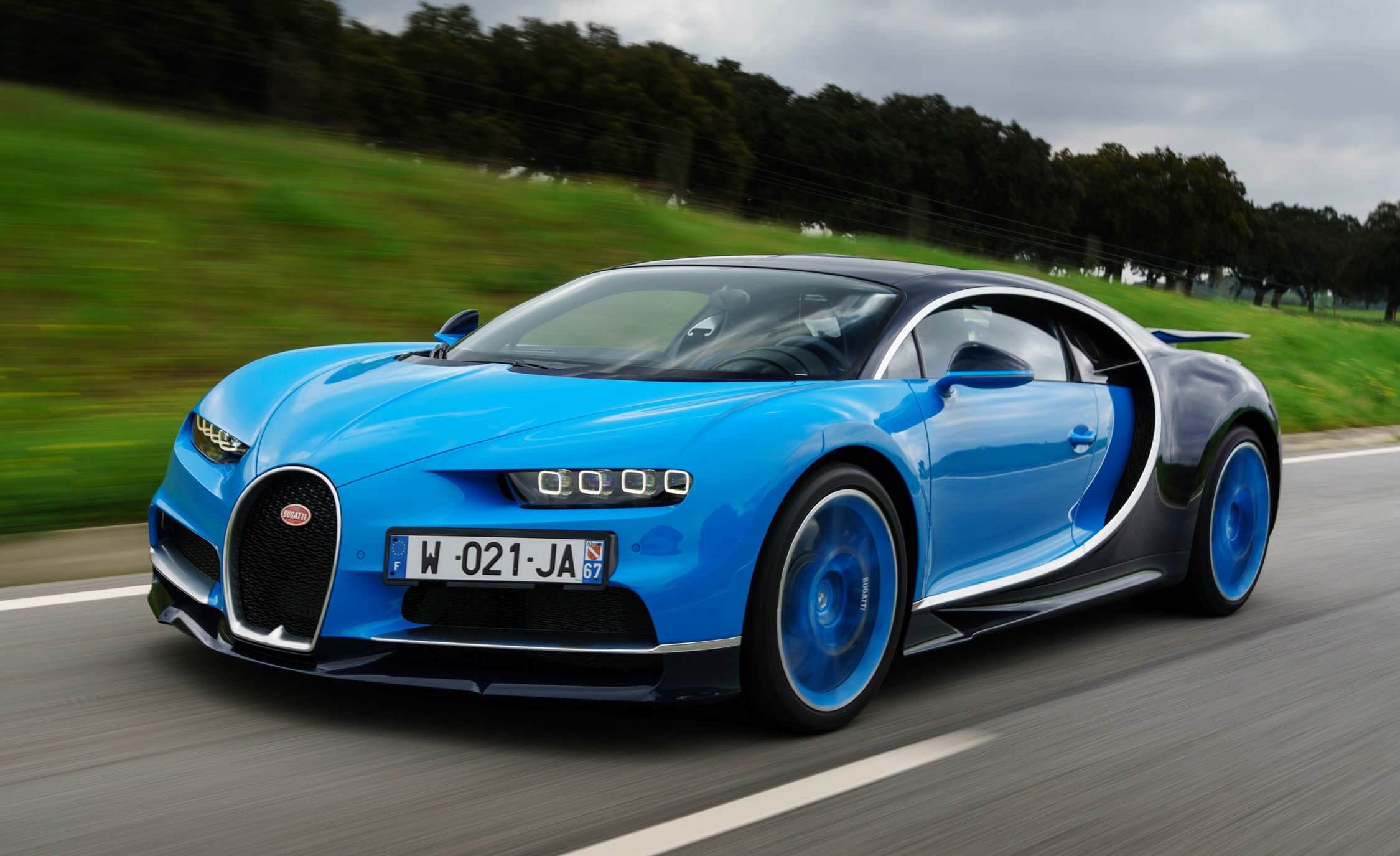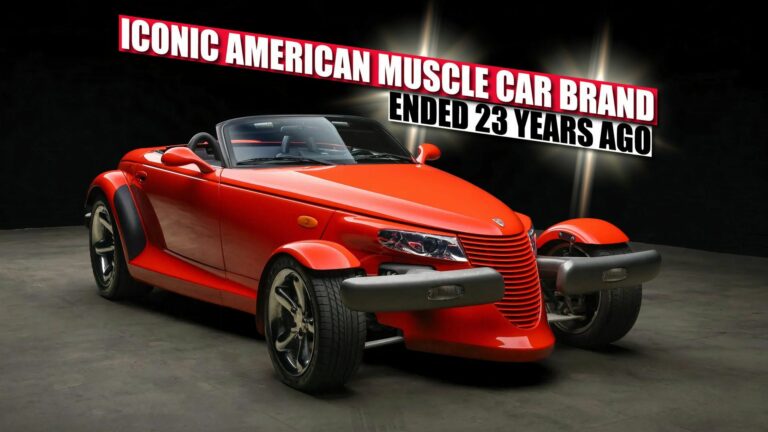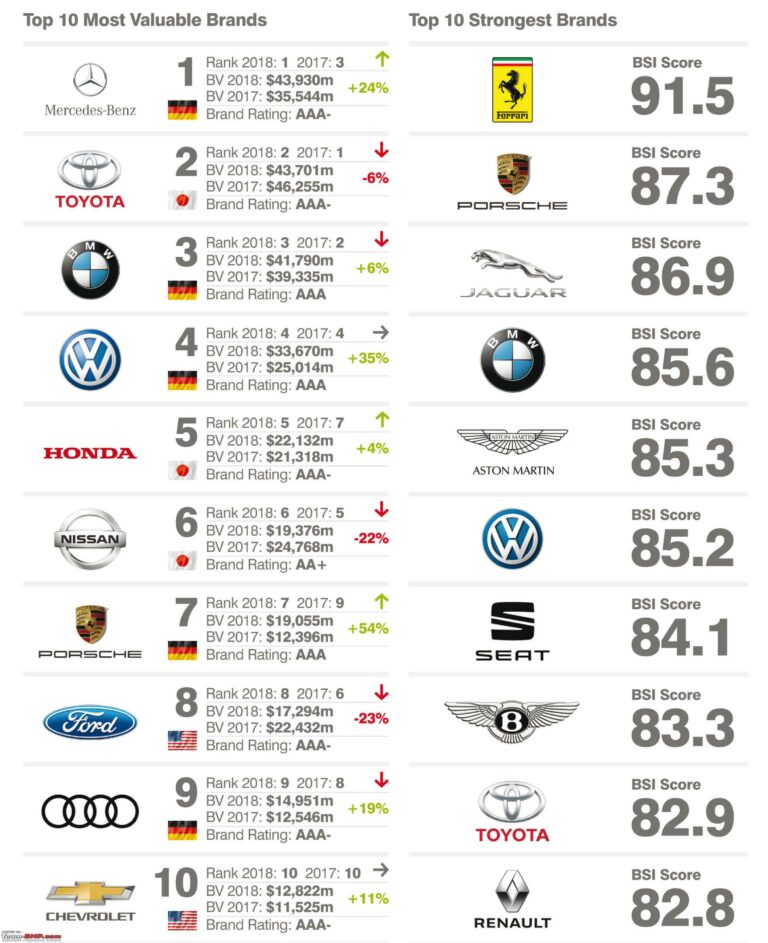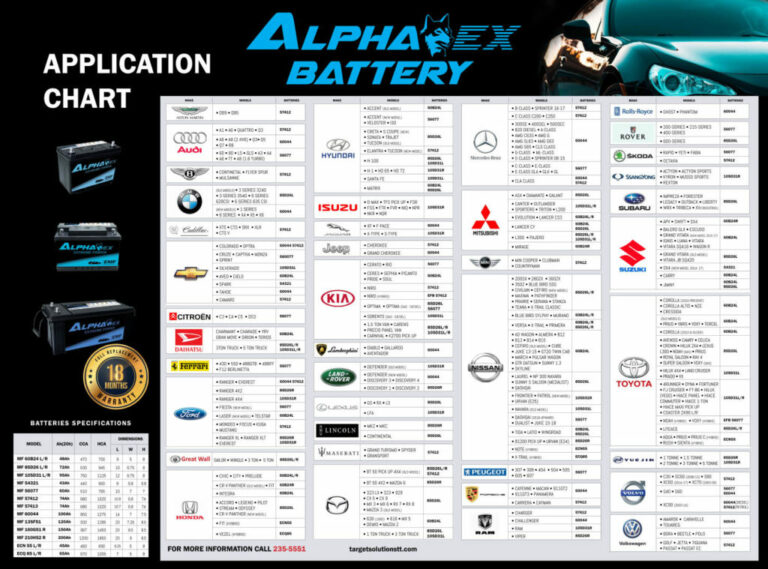What Car Brand Has The Best Gas Mileage? Unpacking Fuel Efficiency in Today’s Automotive Landscape
What Car Brand Has The Best Gas Mileage? Unpacking Fuel Efficiency in Today’s Automotive Landscape cars.truckstrend.com
In an era of fluctuating fuel prices and increasing environmental consciousness, the quest for a car with excellent gas mileage has become a top priority for many consumers. Beyond saving money at the pump, a fuel-efficient vehicle reduces your carbon footprint and offers greater freedom from constant refueling stops. But when it comes to identifying "What car brand has the best gas mileage," the answer isn’t as simple as naming a single champion. It’s a nuanced discussion influenced by vehicle type, powertrain technology, specific models, and even driving habits. This comprehensive guide will delve into the complexities of fuel efficiency, highlighting the leading contenders and offering practical advice to help you make an informed decision.
Understanding Gas Mileage: More Than Just an MPG Number
What Car Brand Has The Best Gas Mileage? Unpacking Fuel Efficiency in Today’s Automotive Landscape
Before we crown any brand, it’s crucial to understand what "gas mileage" truly means. The figures you see advertised, typically expressed in Miles Per Gallon (MPG), are derived from standardized tests conducted by the Environmental Protection Agency (EPA). These tests provide ratings for city driving, highway driving, and a combined average. However, real-world MPG can vary significantly due to several factors:
- Driving Habits: Aggressive acceleration, hard braking, and excessive speeding drastically reduce fuel economy. Smooth, consistent driving is key.
- Vehicle Maintenance: Properly inflated tires, regular oil changes, and clean air filters ensure optimal engine performance.
- Terrain and Weather: Uphill driving, strong headwinds, and extreme temperatures can negatively impact MPG.
- Vehicle Weight and Aerodynamics: Heavier vehicles and those with less aerodynamic designs (like many SUVs and trucks) generally consume more fuel.
- Engine Size and Technology: Smaller, more efficient engines, especially those with turbocharging or hybrid systems, tend to offer better mileage.

It’s also important to distinguish between different powertrain types:
- Internal Combustion Engine (ICE): Traditional gasoline-only vehicles.
- Hybrid Electric Vehicles (HEV): Combine a gasoline engine with an electric motor and battery to improve fuel economy, especially in city driving. They cannot be plugged in.
- Plug-in Hybrid Electric Vehicles (PHEV): Offer a larger battery and electric motor, allowing for a significant all-electric range before the gasoline engine kicks in. They can be plugged in to charge.
- Battery Electric Vehicles (BEV): Run solely on electricity and produce zero tailpipe emissions. While they don’t use "gas," they are often considered in the broader context of fuel efficiency and energy consumption. For the purpose of "gas mileage," our focus will primarily be on HEVs and PHEVs.

The Contenders: Top Brands for Fuel Efficiency
When evaluating which car brand consistently offers the best gas mileage, hybrid and plug-in hybrid technologies are the primary drivers of superior figures. Certain brands have invested heavily and excelled in this domain, establishing themselves as leaders.
1. Toyota: The Hybrid Pioneer and Reigning King

For decades, Toyota has been synonymous with hybrid technology, largely thanks to the groundbreaking Prius. Their commitment to fuel efficiency extends across their entire lineup, making them a consistent frontrunner.
- Key Models: Prius, Corolla Hybrid, Camry Hybrid, RAV4 Hybrid, Highlander Hybrid, Sienna Hybrid.
- Why they excel: Toyota’s Hybrid Synergy Drive system is renowned for its reliability, seamless transitions between gasoline and electric power, and excellent real-world efficiency. They offer a hybrid option in nearly every segment, from compact sedans to family SUVs and minivans.
2. Honda: Refined Efficiency and Driving Dynamics
Honda is another strong contender, offering a compelling range of fuel-efficient vehicles that often combine impressive MPG with engaging driving dynamics.
- Key Models: Insight (discontinued but influential), Accord Hybrid, CR-V Hybrid, Civic Hybrid (newly returning).
- Why they excel: Honda’s hybrid systems are highly efficient, often prioritizing a direct and responsive driving feel. They consistently deliver strong combined MPG ratings, especially in their sedan and compact SUV offerings.
3. Hyundai & Kia: Rapid Innovation and Value
The Korean automotive giants have made significant strides in fuel efficiency, rapidly expanding their hybrid and plug-in hybrid portfolios with competitive offerings that often provide excellent value.
- Key Models: Hyundai Elantra Hybrid, Sonata Hybrid, Tucson Hybrid, Santa Fe Hybrid, Ioniq (now primarily EV/PHEV). Kia Niro (Hybrid, PHEV, EV), Sorento Hybrid, Sportage Hybrid.
- Why they excel: Hyundai and Kia offer a diverse range of hybrids and PHEVs, often with impressive standard features and attractive warranties. Their designs are modern, and their fuel efficiency figures rival the best in class.
4. Lexus: Luxury with Toyota’s Efficiency Backbone
As Toyota’s luxury division, Lexus benefits directly from Toyota’s well-established hybrid technology, offering premium vehicles with surprisingly strong fuel economy for their class.
- Key Models: ES Hybrid, RX Hybrid, NX Hybrid, UX Hybrid.
- Why they excel: Lexus provides a blend of luxury, comfort, and Toyota’s proven hybrid reliability. They are ideal for those seeking fuel efficiency without compromising on upscale features and performance.
5. Ford: Emerging Strong in the Hybrid Truck/SUV Segment
While Ford has historically focused on ICE vehicles, their recent push into hybrid technology, particularly in popular truck and SUV segments, has yielded impressive results.
- Key Models: Maverick Hybrid (truck), Escape Hybrid, Explorer Hybrid.
- Why they excel: Ford’s hybrid offerings are particularly noteworthy for bringing impressive fuel economy to vehicle types traditionally known for lower MPG, such as compact pickups and mid-size SUVs. The Maverick Hybrid, in particular, has redefined expectations for small truck efficiency.
Beyond Brands: Vehicle Categories and Their Impact
While brands are important, the type of vehicle you choose also heavily dictates its potential gas mileage.
- Sedans and Hatchbacks: Generally offer the best gas mileage due to their lighter weight and aerodynamic designs. Compact and mid-size hybrids (e.g., Toyota Prius, Honda Civic Hybrid, Hyundai Elantra Hybrid) often lead the pack.
- Compact SUVs: A popular segment that balances utility with decent fuel economy, especially with hybrid powertrains (e.g., Toyota RAV4 Hybrid, Honda CR-V Hybrid, Kia Sportage Hybrid).
- Mid-Size and Full-Size SUVs & Trucks: Traditionally less fuel-efficient, but hybrid options are increasingly available, significantly improving their MPG (e.g., Toyota Highlander Hybrid, Ford Maverick Hybrid).
Important Considerations When Choosing
Selecting a fuel-efficient car involves more than just looking at the highest MPG number.
- Your Driving Needs: Do you primarily drive in the city or on highways? Hybrids excel in stop-and-go city traffic, while ICE vehicles can be efficient on long highway cruises. Consider your typical commute and cargo needs.
- Budget: While a fuel-efficient car saves money on gas, hybrid and PHEV models often have a higher upfront purchase price. Calculate the "payback period" to see how long it takes for fuel savings to offset the initial cost difference.
- Reliability and Maintenance: A car with great MPG won’t save you money if it’s constantly in the repair shop. Brands like Toyota and Honda are known for their long-term reliability.
- Resale Value: Fuel-efficient vehicles, especially popular hybrids, often hold their value well, which is an important long-term financial consideration.
- Technology and Features: Don’t sacrifice essential safety features or infotainment technology for a few extra miles per gallon. Modern fuel-efficient cars often come well-equipped.
- Environmental Impact: Opting for a higher MPG vehicle or a PHEV/EV significantly reduces your carbon emissions, contributing to a healthier planet.
Tips for Maximizing Your Car’s Gas Mileage
Once you’ve chosen a fuel-efficient vehicle, your driving habits play a crucial role in achieving its advertised MPG.
- Drive Smoothly: Avoid rapid acceleration and hard braking. Anticipate stops and coast when possible.
- Maintain Proper Tire Pressure: Underinflated tires increase rolling resistance, reducing fuel efficiency. Check them regularly.
- Perform Regular Maintenance: Follow your car’s service schedule. Clean air filters, proper oil changes, and well-tuned engines are vital for optimal performance.
- Reduce Unnecessary Weight: Remove heavy items from your trunk or back seat if they’re not needed.
- Avoid Excessive Idling: If you’re going to be stopped for more than 30 seconds, it’s generally more fuel-efficient to turn off your engine (many modern cars do this automatically with start/stop systems).
- Use Cruise Control: On highways, cruise control helps maintain a consistent speed, preventing unnecessary acceleration and deceleration.
- Plan Your Routes: Use navigation apps to avoid heavy traffic and find the most efficient routes.
Leading Fuel-Efficient Models: A Quick Overview
While no single brand has the "best" gas mileage across all categories, here’s a table showcasing some of the leading models from top brands known for their fuel efficiency, providing a snapshot of their performance and approximate pricing.
Table: Leading Fuel-Efficient Models from Top Brands
| Brand | Model | Powertrain Type | Combined EPA MPG (Approx.) | Approx. Starting MSRP (USD) | Key Features/Notes |
|---|---|---|---|---|---|
| Toyota | Prius | Hybrid | 57 MPG | $27,950 | Iconic, excellent overall efficiency, FWD/AWD options |
| Toyota | RAV4 Hybrid | Hybrid | 40 MPG | $31,725 | Popular compact SUV, reliable, good utility |
| Honda | CR-V Hybrid | Hybrid | 40 MPG | $34,600 | Roomy compact SUV, comfortable ride |
| Honda | Accord Hybrid | Hybrid | 48 MPG | $32,895 | Mid-size sedan, refined driving experience |
| Hyundai | Elantra Hybrid | Hybrid | 50 MPG | $26,250 | Stylish compact sedan, great value |
| Kia | Niro (Hybrid) | Hybrid | 53 MPG | $28,315 | Versatile compact crossover, good tech |
| Lexus | ES 300h | Hybrid | 44 MPG | $45,990 | Luxury mid-size sedan, quiet and comfortable |
| Ford | Maverick Hybrid | Hybrid | 37 MPG | $23,815 | Compact pickup truck, surprisingly efficient |
| Toyota | Prime (PHEV) | Plug-in Hybrid | 127 MPGe (44 mi EV range) | $33,400 | Excellent electric range for daily commutes |
| Kia | Sportage Plug-in Hybrid | Plug-in Hybrid | 84 MPGe (34 mi EV range) | $39,890 | Stylish SUV, good all-electric range |
Note: MPG figures are EPA estimates and can vary. MSRPs are approximate for the base model and subject to change.
Conclusion
The question of "What car brand has the best gas mileage" doesn’t yield a single, definitive answer because fuel efficiency is a multifaceted characteristic. However, it’s clear that Toyota consistently leads the pack, particularly in the hybrid segment, with a comprehensive range of highly efficient and reliable vehicles. Honda, Hyundai, and Kia are strong contenders, rapidly closing the gap with their own impressive hybrid and plug-in hybrid offerings that deliver both performance and value. Even luxury brands like Lexus and utility-focused brands like Ford are making significant strides in bringing top-tier fuel economy to diverse vehicle types.
Ultimately, the "best" car for gas mileage is the one that best fits your specific driving needs, budget, and lifestyle while offering the highest efficiency within those parameters. By understanding the factors influencing MPG, exploring leading brands and models, and adopting fuel-efficient driving habits, you can make a smart investment that benefits your wallet and the environment for years to come.
Frequently Asked Questions (FAQ)
Q1: Is it always worth paying more for a hybrid car?
A1: Not always. While hybrids offer significant fuel savings, they often have a higher upfront cost. It’s essential to calculate the "payback period" – how long it takes for the fuel savings to offset the initial price difference. For high-mileage drivers, the payback is quicker and more worthwhile.
Q2: Do electric cars count for "gas mileage"?
A2: Electric cars (BEVs) don’t use gasoline, so they don’t have "gas mileage." Instead, their efficiency is measured in Miles Per Gallon equivalent (MPGe), which represents how far an EV can travel on the same amount of energy contained in one gallon of gasoline. They offer zero tailpipe emissions and can be much cheaper to "fuel" than gasoline cars, depending on electricity costs.
Q3: How much does driving style affect gas mileage?
A3: A lot! Aggressive driving (rapid acceleration, sudden braking, speeding) can reduce your car’s fuel efficiency by 15-30% on the highway and 10-40% in stop-and-go city traffic. Smooth, consistent driving is key to maximizing MPG.
Q4: What’s the difference between a hybrid and a plug-in hybrid (PHEV)?
A4: A standard hybrid (HEV) uses a small battery and electric motor to assist the gasoline engine, improving efficiency but cannot be plugged in. A plug-in hybrid (PHEV) has a larger battery and more powerful electric motor, allowing it to drive a significant distance (e.g., 20-50 miles) purely on electricity before the gasoline engine activates. PHEVs must be plugged in to recharge their batteries.
Q5: Will my car’s gas mileage improve over time?
A5: Generally, no. A car’s gas mileage tends to decline slightly over time as components wear out and efficiency reduces. However, consistent maintenance, such as regular oil changes, tire rotations, and air filter replacements, can help maintain optimal fuel economy throughout the vehicle’s lifespan.





